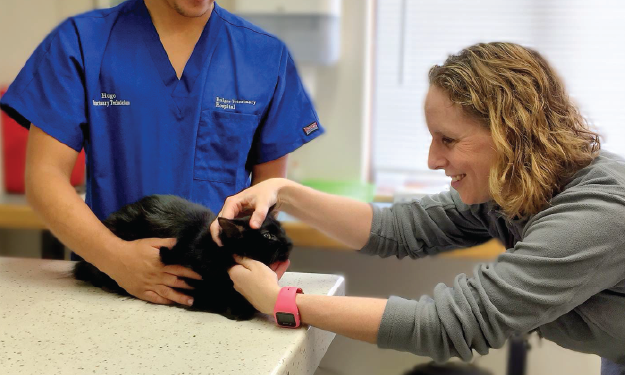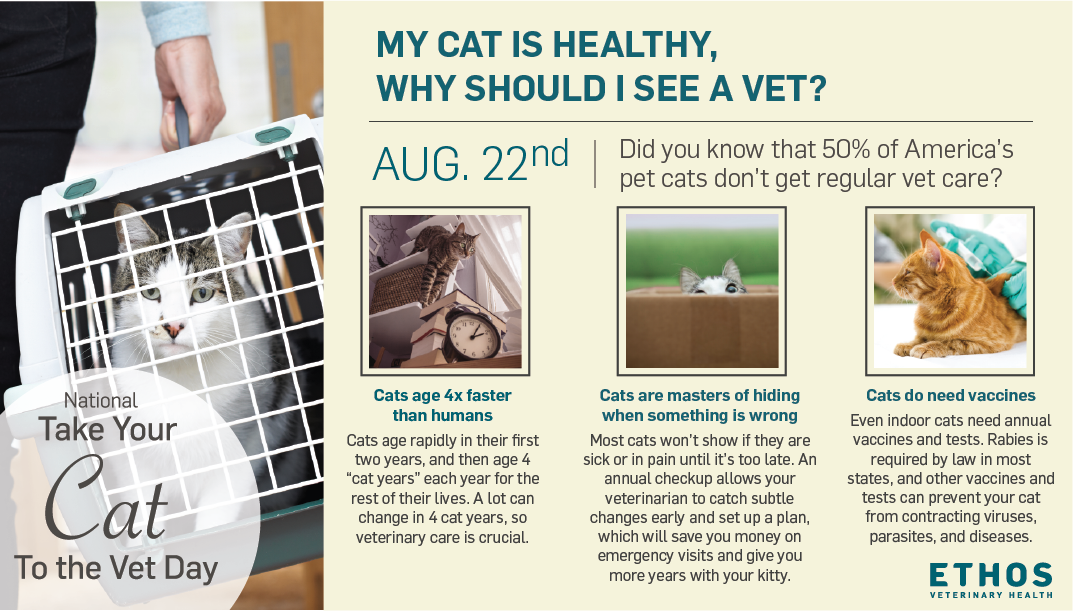Annual Cat Vaccines

Vaccines are an important part of your cat’s overall wellness program. They provide essential protection against severe diseases that were once common causes of illness and death. Routine vaccines are highly effective, so the risk of properly vaccinated animals contracting these diseases is very low.
While kittens are nursing, the milk they drink gives them maternal immunity from the diseases their mother was vaccinated against. Maternal immunity lasts between 6 and 12 weeks. In order to be effective, vaccinations are given to kittens at 6-8 weeks, 12 weeks, and 16 weeks of age.
While the risks associated with vaccinations are low, no veterinarian wants to cause a problem in a healthy animal with a preventative treatment. For this reason, vaccines are divided into “Core” vaccines (those that are strongly recommended in all pets regardless of lifestyle) and “Non-Core” vaccines (those that are given to animals with lifestyles that may put them at higher risk). Please discuss the various vaccinations, and their risks and benefits with your vet. Multiple diseases are sometimes combined into one vaccine to reduce stress for your kitten.
Core (Essential) Vaccines
Feline Distemper (FVRCP)
Commonly known as the “distemper” vaccine, this includes protection against Feline Viral Rhinotracheitis, Feline Calicivirus, and Feline Panleukopenia. These are viruses that cause a variety of upper respiratory and intestinal diseases.
Rabies
A fatal viral infection of the neurologic system which is communicable to all mammals (including humans). In most states, a rabies vaccine is required by law.
Non-Core (Lifestyle Dependent) Vaccine
Feline Leukemia Virus (FeLV)
The feline leukemia vaccine (FeLV) is recommended for outdoor cats who may encounter other outdoor cats, who could be infected. Feline Leukemia becomes a persistent infection that suppresses the immune system of cats. In most cases the disease is fatal. FeLV is an important cause of anemia in cats and can cause several types of cancers. Feline Leukemia and Feline Immunodeficiency (Feline AIDs) testing is available.
Immunity in most properly vaccinated cats will last more than a year, although immunity declines over time at a rate which varies with the individual. Your veterinarian can recommend the best frequency of booster shots for your cat based on his or her lifestyle. Every year or every three years is standard for core vaccinations for most cats.
